
Conversational AI is the technology that enables machines to interact with humans using natural language. It can take various forms, such as chatbots, voice assistants, and virtual agents. In the healthcare sector, conversational AI can play a vital role in improving patient care, streamlining administrative tasks, and enhancing the overall healthcare experience.
According to a report by Juniper Research, global spending on conversational AI for healthcare is expected to reach $3.7 billion by 2025, up from $277 million in 2019. This indicates the rising demand for AI-driven solutions that can assist healthcare providers, streamline operations, and improve patient engagement.
However, not all conversational AI solutions are created equal. Some may offer more features, functionality, and benefits than others. Therefore, it is important to evaluate and select the best conversational AI solutions for healthcare based on various criteria and factors.
In this article, we will explore the role of conversational AI in healthcare, the criteria for selecting the top 10 conversational AI solutions in healthcare, the real-world applications, tbe benefits of these solutions, and the future trends in this field.
How Conversational AI Is Transforming Healthcare
Conversational AI offers a multitude of benefits in the healthcare sector, with key roles encompassing assistance to healthcare providers, streamlining operational processes, and improving patient engagement. These roles are manifested in various conversational AI use cases, such as appointment scheduling, symptom checking, diagnosis, medication prescription, health condition monitoring, and follow-up care. By automating these functions, conversational AI for healthcare not only saves time but also enhances efficiency and minimizes errors.
Furthermore, implementing a conversational AI strategy for healthcare contributes to the optimization of healthcare operations in settings such as hospitals, clinics, and telehealth platforms. It effectively handles responsibilities like billing, insurance claims, inventory management, patient feedback, and reporting. This capability results in cost reduction, heightened productivity, and increased patient satisfaction.
Additionally, conversational AI plays a pivotal role in improving patient engagement by delivering timely information, personalized guidance, and emotional support. It engages with patients through diverse communication channels, like text messages, voice calls, or mobile apps, and utilizes natural language processing (NLP) and machine learning (ML) to comprehend patients’ needs, preferences, and emotions. As a result, conversational AI for healthcare fosters patient loyalty, retention, and overall satisfaction.
In addressing prevailing healthcare challenges, conversational AI is instrumental in:
1. Reducing administrative burdens by automating tasks such as documentation, billing, and coding, which allows healthcare professionals to allocate more time to patient care.
2. Enhancing patient access by providing round-the-clock services, lowering costs, and raising awareness about telehealth, thereby overcoming barriers to access.
3. Ensuring better patient outcomes by delivering reminders, education, and motivation to patients, thereby increasing adherence to treatment plans and improving overall health outcomes.
Criteria for Selecting the Top 10 Conversational AI Solutions
To select the top 10 conversational AI solutions for healthcare, we considered key factors and criteria:
1. User-Friendliness: Solutions should be easy to use with an intuitive interface, engaging conversation style, and clear output.
2. Scalability: The ability to handle large volumes of users and adapt to changing healthcare needs was assessed.
3. Integration: Solutions should seamlessly integrate with existing healthcare systems and securely exchange data.
4. Cost-Effectiveness: We evaluated whether the solutions offer good value, provide a positive return on investment, and reduce costs.
5. Regulatory Compliance: Compliance with healthcare regulations like HIPAA, GDPR, and FDA standards was a crucial requirement.
These criteria helped us identify the top 10 conversational AI solutions for healthcare, ensuring they meet essential standards for usability, scalability, integration, cost-effectiveness, and regulatory adherence.
The Top 10 Conversational AI For Healthcare
Based on the criteria above, we selected the top 10 conversational AI for healthcare. These are:
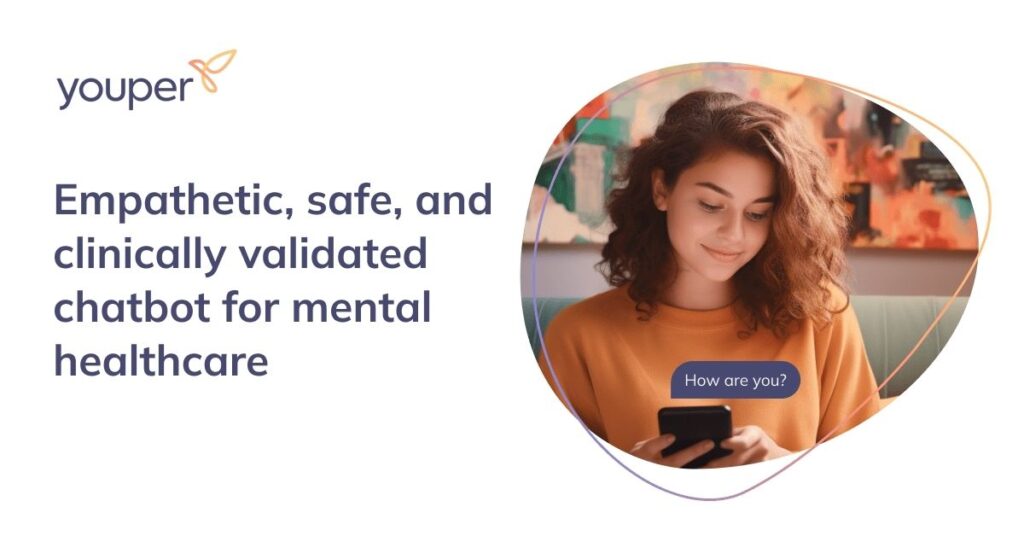
Youper is a conversational AI solution that helps users improve their mental health. It uses NLP and ML to understand the user’s emotions, thoughts, and behaviors. It then provides personalized feedback, guidance, and therapy based on cognitive behavioral therapy (CBT), mindfulness, and other evidence-based techniques.
Youper is a mental health app that helps users cope with various issues and improve their wellbeing. It connects users with therapists and shares data with providers. It has over 2 million users worldwide and has proven results from Stanford University. It also works with mental health organizations to provide support and resources.

Florence is a conversational AI solution that acts as a personal health assistant. It uses NLP and ML to communicate with users through text messages or voice calls. It can perform various tasks, such as scheduling appointments, checking symptoms, providing diagnosis, prescribing medication, monitoring health conditions, and providing follow-up care.
Florence is a health assistant app that helps users with various health issues and tasks. It connects users with providers, EHRs, and local services. It has over 1 million users in 20 countries and high satisfaction ratings. It works with healthcare providers to provide coordinated care.
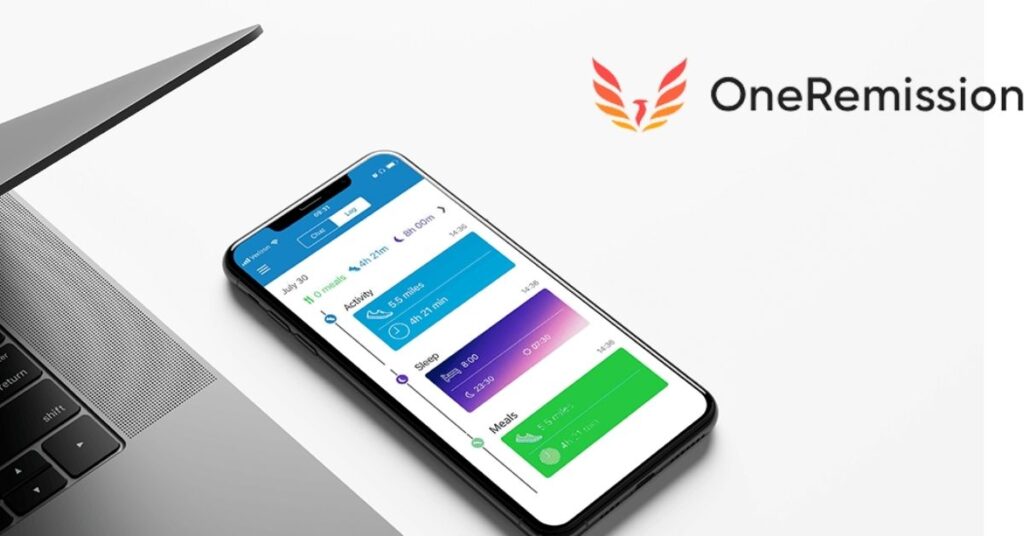
OneRemission is a conversational AI for healthcare solutions that helps cancer patients and survivors. It uses NLP and ML to provide personalized support and guidance based on the user’s type of cancer, stage, treatment, and lifestyle. It can offer various services, such as nutrition advice, exercise recommendations, symptom management, emotional support, and survivorship care.
OneRemission is a cancer app that helps users with their condition and well-being. It connects users with specialists, shares data with providers, and works with cancer centers. It improves quality of life, reduces side effects, and increases survival rate.
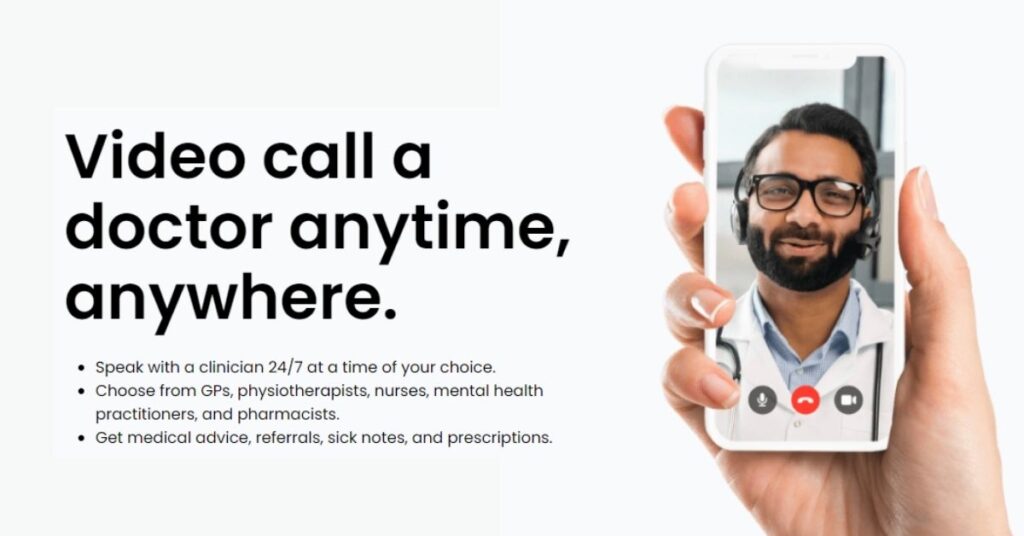
Babylon Health is a conversational AI solution that provides accessible and affordable healthcare to users. It uses NLP and ML to interact with users through text messages or voice calls. It can offer various services, such as symptom checking, diagnosis, treatment, prescription, referral, and booking.
Babylon Health is a healthcare app that provides users with various services, such as symptom checking, diagnosis, treatment, prescription, referral, and booking. It has over 10 million users in 15 countries and has high satisfaction ratings. It also works with governments to provide universal and accessible healthcare.
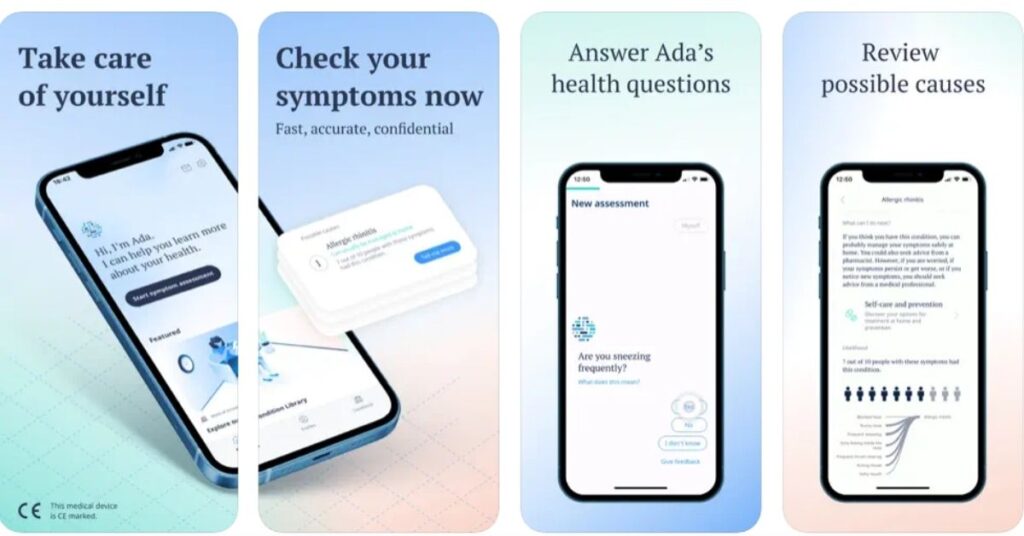
Ada Health is a conversational AI solution that helps users understand their health and get appropriate care. It uses NLP and ML to ask users relevant questions about their symptoms, medical history, and risk factors. It then provides an assessment of the possible causes, severity, and next steps.
Ada Health is a health app that helps users understand their health and get appropriate care. It has over 11 million users in 130 countries and has high accuracy, trust, and referral ratings. It also works with organizations to improve global health and reduce health inequalities.
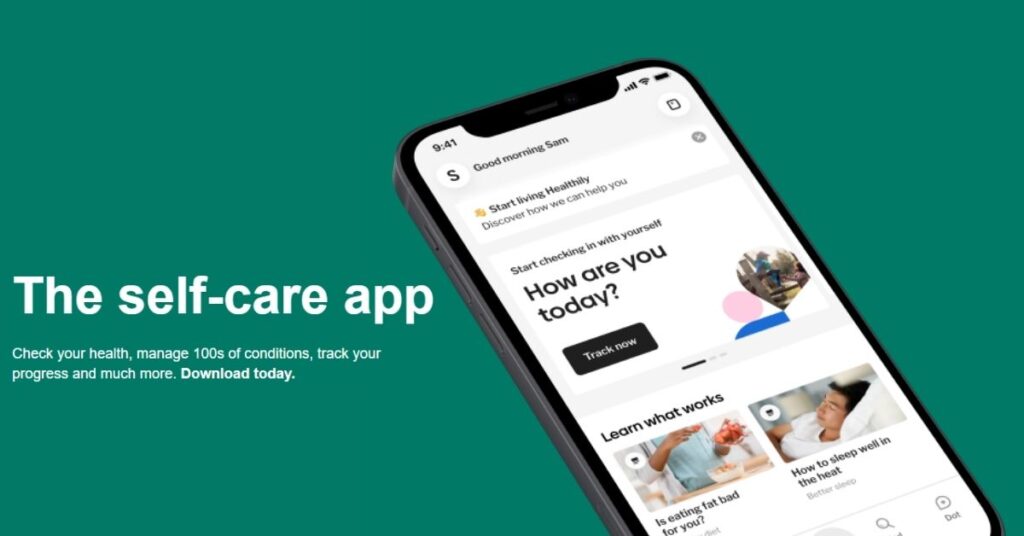
Healthily is a conversational AI solution that helps users take charge of their health and well-being. It uses NLP and ML to provide personalized health information, advice, and support based on the user’s symptoms, goals, and lifestyle. It can offer various services, such as self-care guidance, health coaching, wellness tips, and community support.
Healthily is an app that helps users with various health issues and promotes better habits and choices. It allows users to access online consultations, sync with EHRs and other software, and get self-care guidance and support. It has over 5 million users in 40 countries and works with healthcare providers.
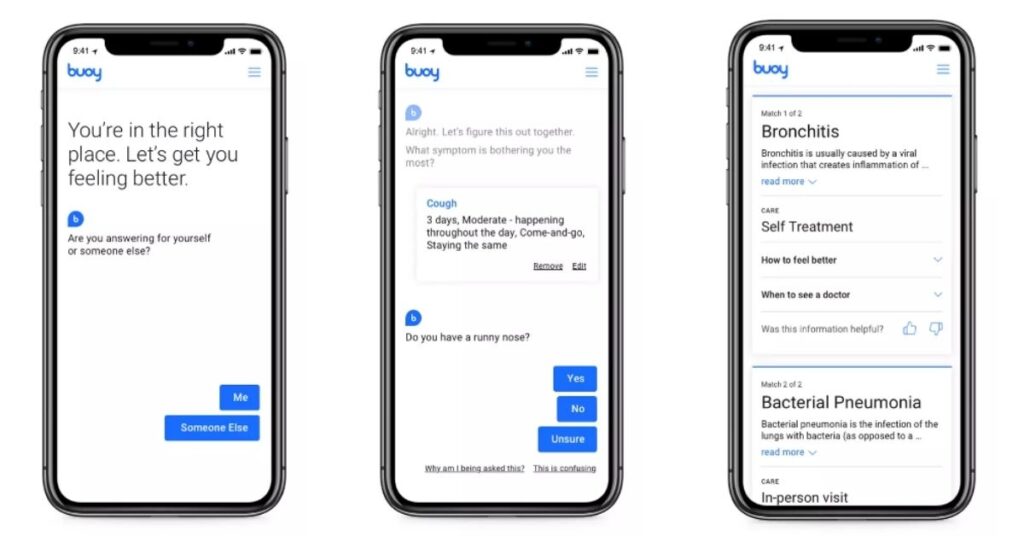
Buoy Health is a conversational AI solution that helps users find the right care at the right time. It uses NLP and ML to ask users questions about their symptoms, medical history, and demographics. It then provides a personalized analysis of the possible causes, risks, and treatments.
Buoy Health is a tool that helps users with different health problems and guides them to the right care. It can be used on mobile or web, and it connects with hospitals and clinics. It has over 9 million US users who trust its service and use it to get quality care. It works with employers, insurers, and providers to reduce costs and improve outcomes.
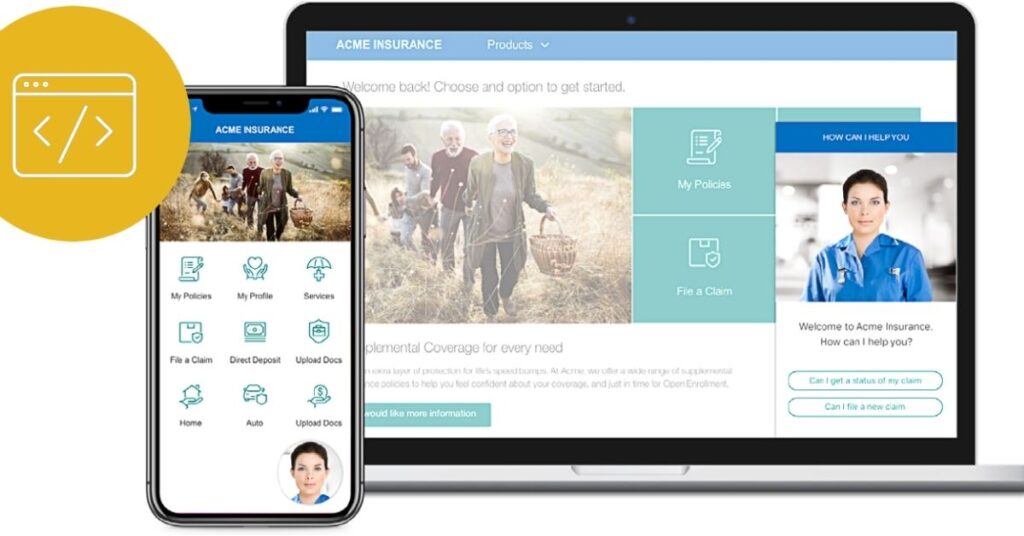
Sensely is a conversational AI solution that helps users manage their health and wellness. It uses NLP and ML to create realistic and engaging avatars that interact with users through voice or text. It can offer various services, such as symptom checking, triage, chronic disease management, medication adherence, and wellness coaching.
Sensely is an app that helps users with various health issues and wellness goals by providing personalized plans, reminders, and incentives. It also connects users with online consultations and integrates with EHRs and other software. It has over 3 million users in 10 languages and high ratings for engagement, outcomes, and savings. It partners with Mayo Clinic to provide evidence-based and personalized care.
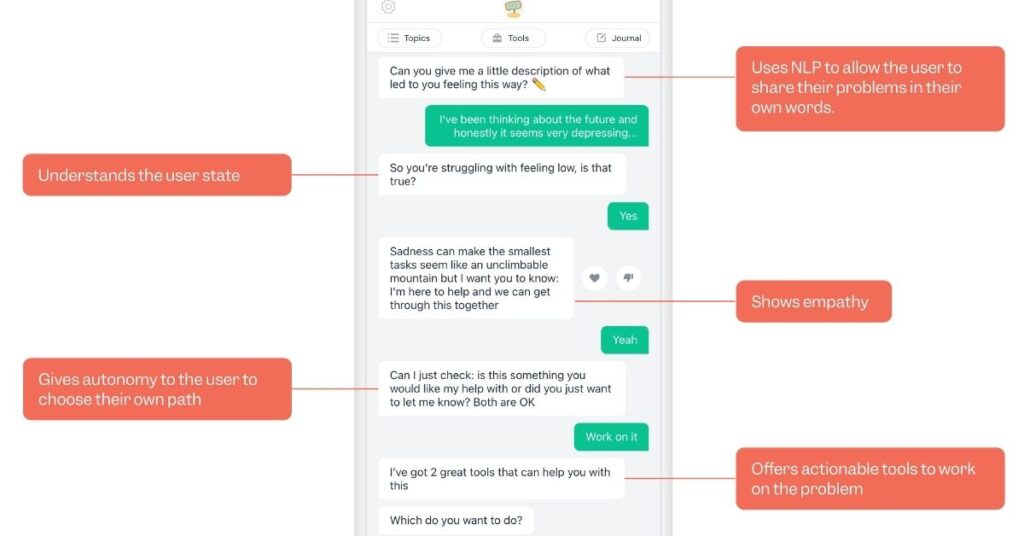
Woebot is a conversational AI solution that helps users cope with mental health challenges. It uses NLP and ML to provide cognitive behavioral therapy (CBT) through chat conversations. It can offer various services, such as mood tracking, psychoeducation, coping skills, and emotional support.
Woebot is an app that offers support for mental health issues like depression, anxiety, stress, and loneliness. It helps users improve their mood, resilience, and well-being. It also connects users with therapists and shares data with healthcare providers. It has over 2 million users in 120 countries and has proven to reduce depression and anxiety and increase happiness. It also works with Stanford University to provide research-based and ethical mental health care.
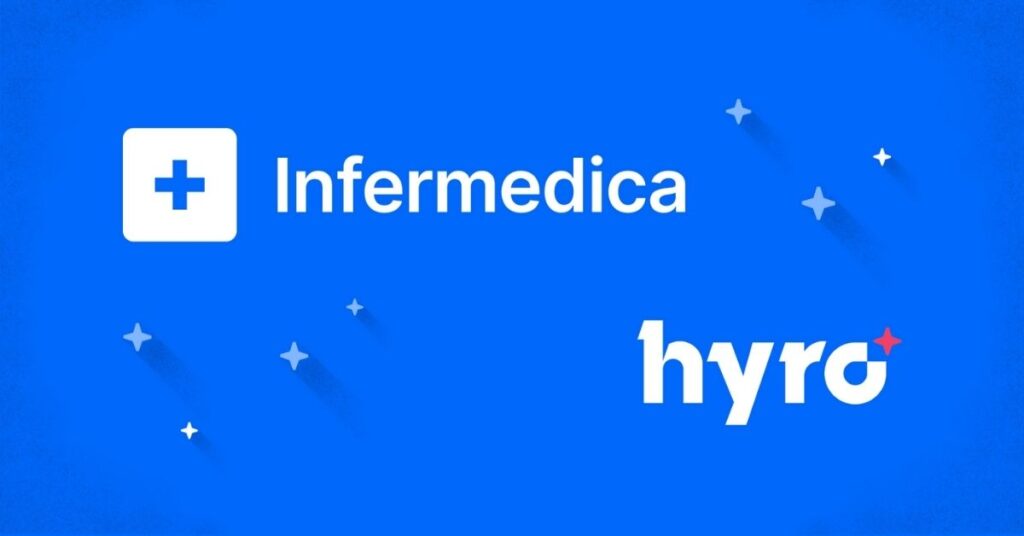
Infermedica is a conversational AI solution that helps users get accurate and reliable medical advice. It uses NLP and ML to collect information from users about their symptoms, medical history, and risk factors. It then provides an assessment of the possible causes, severity, and next steps.
Infermedica is a healthcare tool that helps users with various health concerns and offers information and recommendations. It can be used on mobile or web, and it connects with EHRs and other software. It can also help users find local doctors and services. It has over 4 million users in 15 languages and high ratings for accuracy, satisfaction, and referral. It works with Microsoft to deliver innovative and scalable healthcare solutions.
Patient Experience and Engagement
Conversational AI for healthcare offers numerous benefits for enhancing the patient experience. It engages patients by providing timely health information, personalized guidance, and emotional support. However, there are potential concerns and barriers to patient acceptance:
Benefits of Conversational AI for Patients
1. Timely Information: Conversational AI offers patients timely information about their health issues and healthcare options, enabling informed decisions.
2. Personalized Guidance: It provides tailored guidance and feedback to help patients achieve health goals and improve outcomes.
3. Emotional Support: Conversational AI uses natural language and empathy to support patients emotionally and connect them with communities or professionals for shared experiences.
Concerns and Barriers
1. Trust and Credibility: Patients may doubt the accuracy and reliability of conversational AI, so it should provide clear sources, and explanations, and acknowledge its limitations.
2. Privacy and Security: Patients may be uncomfortable sharing personal data, so conversational AI must comply with healthcare regulations and inform patients about data rights and consent.
3. User-Friendliness and Accessibility: Patients might struggle with complex interfaces or language barriers, so conversational AI should have a user-friendly interface, support multiple languages, and provide assistance to users as needed.
Addressing these concerns will be crucial to gaining patient trust and maximizing the benefits of conversational AI for healthcare.
Future Trends and Developments
The future of conversational AI for healthcare is promising and marked by several emerging trends:
1. Voice Assistants: Voice assistants offer natural and convenient AI interaction, especially with AR or VR.
2. Chatbots: Chatbots provide accessible and affordable AI interaction, especially for users with low internet access.
3. Personalized Health Recommendations: Personalized health recommendations offer tailored advice and support based on users’ health data and goals.
These trends are influenced by evolving healthcare regulations and technological advancements:
4. Healthcare Regulations: Regulations like HIPAA, GDPR, and FDA are becoming more complex for conversational AI. They present both challenges and opportunities, such as ensuring compliance and fostering innovation. Regulations also shape the development and adoption of conversational AI, setting standards and guidelines.
5. Technological Advancements: Technologies like 5G, cloud computing, and blockchain are increasingly accessible in the context of conversational AI. They offer benefits such as enhanced performance, scalability, and security. These advancements drive innovation and enable new features and applications in conversational AI.
The combination of these trends and the impacts of healthcare regulations and technological advancements are shaping a bright future for conversational AI for healthcare, offering better, more personalized, and compliant solutions.
Conclusion
Conversational AI holds immense potential to transform the healthcare industry, benefiting providers, patients, and organizations. It addresses current healthcare challenges. However, it’s not a one-size-fits-all solution, requiring careful evaluation and adaptation to changing healthcare needs.
In this article, we’ve delved into the role of conversational AI for healthcare, the criteria for selecting top solutions, real-world applications and benefits, and future trends. We hope this information has been valuable.
If you wish to explore further or try out the top conversational AI solutions in healthcare, you can visit their websites or download their apps. Feel free to ask any questions about conversational AI or healthcare, and we’ll be happy to assist you.
FAQ
What is conversational AI for healthcare?
Conversational AI for healthcare is the use of artificial intelligence technologies, such as natural language processing, machine learning, and speech recognition, to enable human-like interactions between patients, healthcare providers, and health systems through voice or text interfaces. Conversational AI can help automate various tasks and requests, such as appointment scheduling, prescription refills, billing inquiries, symptom checking, and more.
What are the benefits of conversational AI for healthcare?
Conversational AI in healthcare delivers numerous benefits, including improved patient satisfaction through personalized responses, cost reduction via task automation, heightened patient engagement with digital services, and the generation of valuable insights from interactions to enhance clinical and business outcomes like care quality, patient safety, and revenue growth.
What are the challenges of conversational AI for healthcare?
Conversational AI in healthcare grapples with challenges encompassing data privacy compliance, accuracy in handling complex queries, integration with existing IT systems, and building trust among patients and providers. Addressing ethical issues like bias and transparency is essential for successful implementation in healthcare settings.
What are some examples of conversational AI for healthcare?
Conversational AI is making significant strides in healthcare with platforms like Babylon Health offering comprehensive mobile-based services, Sensely using virtual nurse avatars for patient interactions and monitoring, Orbita facilitating the creation of voice and chat applications for various healthcare scenarios, and Buoy Health assisting users in symptom assessment and connecting them to relevant healthcare resources. These examples highlight the diverse applications of conversational AI in addressing healthcare needs effectively.
How to choose the best conversational AI for healthcare?
Choosing the right conversational AI for healthcare involves considering factors such as accurate language processing, flexible deployment, customization options, and adherence to security and ethical standards. The absence of a one-size-fits-all solution requires careful evaluation of features based on diverse use cases. A successful conversational AI should excel in natural language understanding, deployment speed, scalability, customization, security, and user experience to meet the specific needs of healthcare applications.
What are the trends and future of conversational AI for healthcare?
Conversational AI in healthcare is advancing rapidly with trends like incorporating advanced technologies (deep learning, computer vision, emotion recognition), expanding into new domains (mental health, elderly care, rural areas), creating empathetic agents attuned to user emotions, developing collaborative AI-human systems, and exploring diverse applications such as health coaching and social support. These trends signify a transformative trajectory, emphasizing the potential for more effective, inclusive, and holistic healthcare solutions through conversational AI.

